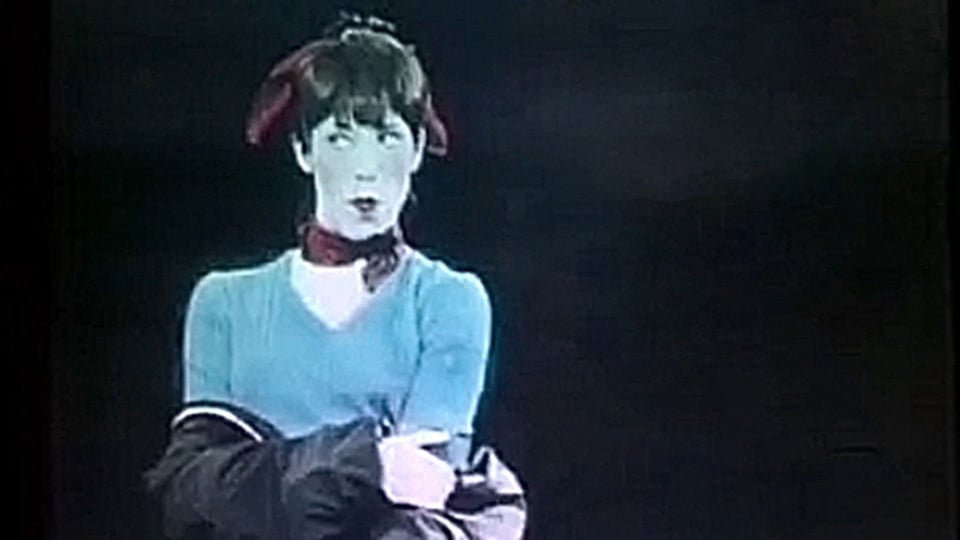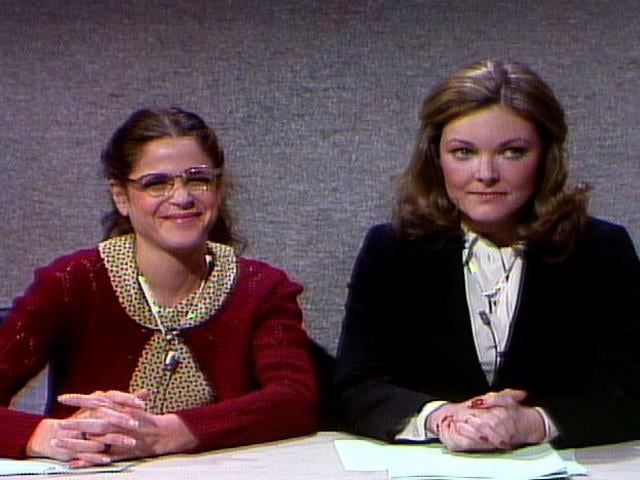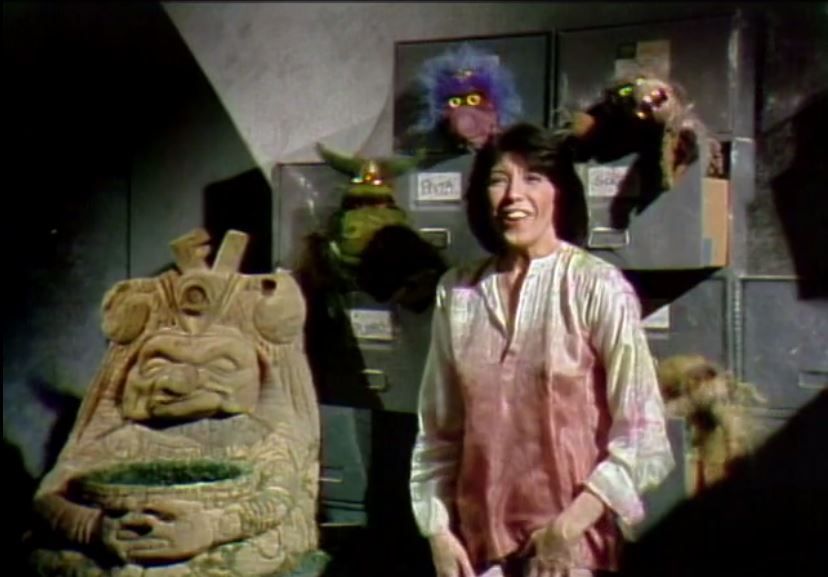September 18, 1976, the host is Lily Tomlin and the musical guest is James Taylor
Lily Tomlin hosts the premiere of the second season of Saturday Night Live.

Here's some stuff that happened in the past

The premiere of Saturday Night Live's second season opens with host Lily Tomlin making an ironic superstar entrance surrounded by an entourage worthy of Elvis or Vinnie Chase. She now has her own personal magician, various hangers-on, and a little person chauffeur whose job duties include topping off everyone's champagne.
With the crazed narcissism of a true diva, Tomlin very confidently calls her old friends in the Not Ready for Primetime Players by their wrong names. Chevy becomes Jerry, she mistakes Radner for her Laugh-In colleague Goldie Hawn, and Jane Curtin becomes Jane Belushi.
Chevy Chase, whose kingdoms included "Weekend Update" and the Cold Open, is left alone to explain to the confused and underwhelmed chauffeur that the Cold Open is generally his domain, and he generally kicks things off with a humorous fall.

The satisfying twist is that Tomlin's diminutive driver might not understand Saturday Night Live, but he nevertheless does his part by tripping Chase and sending him sprawling.
In the fake reality of the show, Chase is worried that he might not get to do the cold open EVERY GODDAMN EPISODE LIKE HE'S A FUCKING KING OR SOMETHING.
In the actual reality of the show, it was Chase who had gone Hollywood and would not be the admired, resented, and envied star of the show for much longer. Movies beckoned, but it confusingly took him two years to make a rock-solid starring cinematic debut in 1978's Foul Play.

Tomlin had just been nominated for an Academy Award for Best Supporting Actress for Nashville. She was riding high. So was the cast and crew of Saturday Night Live, and that is only partially a drug reference. Chase alone had picked up two Emmys, one for writing and one for performing.
Incidentally, I've always wondered why Chase, who was hired as a writer rather than a performer, never did any real writing after leaving Saturday Night Live. He'd get nominated for writing on a Paul Simon special in 1978 (wonder how he got that gig?) and wrote on The Chevy Chase Show but does not have a single screenplay credit.
Chase takes center stage in what would become a staple of Saturday Night Live: the Presidential debate sketch. Chase's Gerald Ford and Dan Aykroyd's Jimmy Carter are a study in contrasts.
Chase famously played Ford as someone who didn't know anything and blundered about life in a confused haze.
Aykroyd, in sharp contrast, plays Carter as someone who knows everything. It's an exceedingly smart man's tribute to an even smarter man. Carter may have spoken with a honey-dripping drawl, but the man is a literal nuclear scientist and Nobel Prize winner.
This again proves the perfect showcase for Tomlin's deeply humane, empathetic style of character-based comedy. This is most evident in a lovely, poignant sketch where Garret Morris plays a salesman, and Tomlin plays a widow with a not-so-secret agenda in luring the salesman to her home.

It gradually becomes apparent to the audience and Morris' frustrated worker that the woman has zero interest in what he's peddling but desperately needs someone to talk to because she is so lonely.
She's someone who just wants someone to listen to her while she yammers on about things that couldn't possibly be of interest to anyone but her. It's funny in an observational rather than laugh-out-loud way because it's fundamentally dramatic as well as comic.
Saturday Night Live didn't get huge ratings in its first season, but it had incredible heat, and it scored with the audience advertisers and society value most: people between 18 and 34 years old.
Michaels enjoyed a reputation at NBC as a youth whisperer. He seemed to understand the kids, and that eventually made him a figure of enormous power. In that respect, he's a little like Matthew McConaughey's character in Dazed & Confused; he gets older, but his cast stays the same age.
The second season premiere leaps from high to high. Audiences had to delay their gratification all summer, but it was worth the wait.
Grade: A
Best Sketch: "Tess and the Salesman"
Weakest sketch: At the risk of cheating, they're all good
You just read issue #32 of Every Episode Ever. You can also browse the full archives of this newsletter.
-
Pedantic note: Carter as a "nuclear scientist" is an exaggeration. He has a B.S. degree (undifferentiated at the Naval Academy in his day, but it was and is basically an engineering school.) Obviously in 1946 it was a bit early for USNA to have specialized nuclear engineering training.
He was one of Rickover's officers, which is definitely impressive, but his job was kinda like Homer Simpson's (or Homer's supervisor, more like.) He was going to nuclear power school when he resigned his commission, and no doubt could have succeeded on that track if he'd stayed in the Navy, but he didn't.
My dad worked with a lot of genuine nuclear scientists and engineers who were irritated that the media basically acted like Carter was one their peers. https://homework.study.com/explanation/was-jimmy-carter-a-nuclear-engineer.html
Add a comment: